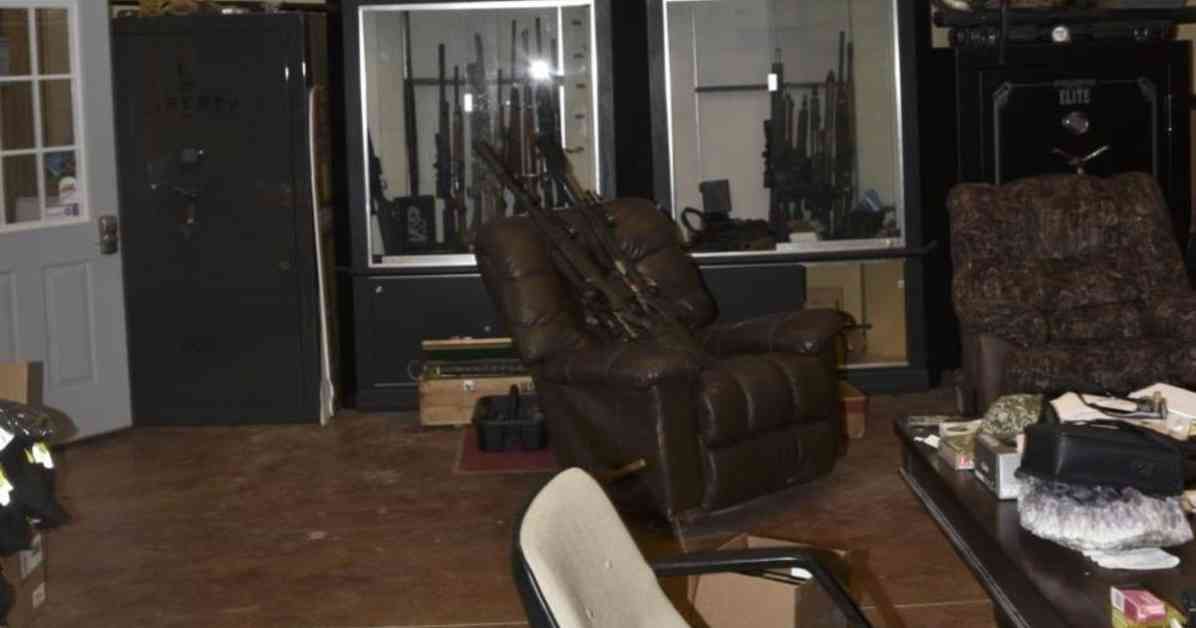Illegal Police Sale of Restricted Weapons Fuels Crime Syndicates
In a shocking revelation, a CBS News investigation has uncovered a disturbing trend across the United States where police officers are illegally selling firearms, including weapons of war, to various buyers, fueling crime syndicates and putting communities at risk.
The investigation revealed a case in Adair, Iowa, where the three-person police department requested to purchase 90 machine guns, including a high-powered M134 Gatling-style minigun. Further scrutiny exposed the police chief, Bradley Wendt, who was using his position to acquire these weapons and sell them for personal profit. Wendt’s conviction on charges of conspiracy to defraud the United States, lying to federal law enforcement, and illegal possession of a machine gun shed light on a nationwide pattern of law enforcement leaders engaging in similar illicit activities.
Rampant Illegal Sales Nationwide
Across 23 states, Puerto Rico, and Washington, D.C., multiple law enforcement officials, ranging from sheriffs to police chiefs, have been implicated in the illegal sale of firearms. These sales, often conducted online or through illicit channels, have led to an influx of weapons into the hands of violent criminals, contributing to crimes such as drug trafficking and arms dealing.
One particularly egregious case involved a smuggling ring in New Mexico that delivered automatic weapons to a Mexican cartel, highlighting the dangerous consequences of these illegal transactions. The investigation also uncovered a multistate conspiracy involving sanctioned arms dealers and law enforcement officers, further emphasizing the extent of the issue.
Accountability and Oversight Challenges
Despite federal regulations governing the purchase and possession of high-powered firearms, loopholes have allowed unscrupulous individuals to exploit the system for personal gain. The lack of stringent audits and oversight by agencies like the Bureau of Alcohol, Tobacco, Firearms, and Explosives (ATF) has enabled these illegal activities to persist unchecked.
Former ATF agents have expressed concerns about the reluctance of prosecutors to pursue cases against law enforcement officers involved in weapon sales, citing a culture of leniency within the law enforcement community. The need for greater accountability and enforcement of existing laws is paramount to curbing this alarming trend.
The Human Cost
Behind the statistics and court cases lie the real impact of these illegal sales – the lives lost and communities devastated by the proliferation of weapons of war. From the fatal shooting of a 14-year-old boy to the arming of criminal organizations, the consequences of these actions reverberate far beyond individual transactions.
As we grapple with the implications of this investigation, it is essential to address the systemic issues that allow such behavior to persist. By holding accountable those who betray their oath to protect and serve, we can begin to restore trust in our law enforcement institutions and ensure the safety of all citizens.
In conclusion, the revelations brought to light by the CBS News investigation serve as a stark reminder of the need for vigilance and transparency in the realm of law enforcement. As we confront the challenges posed by illegal weapon sales, it is imperative that we work together to uphold the principles of justice and integrity that form the foundation of our society.









